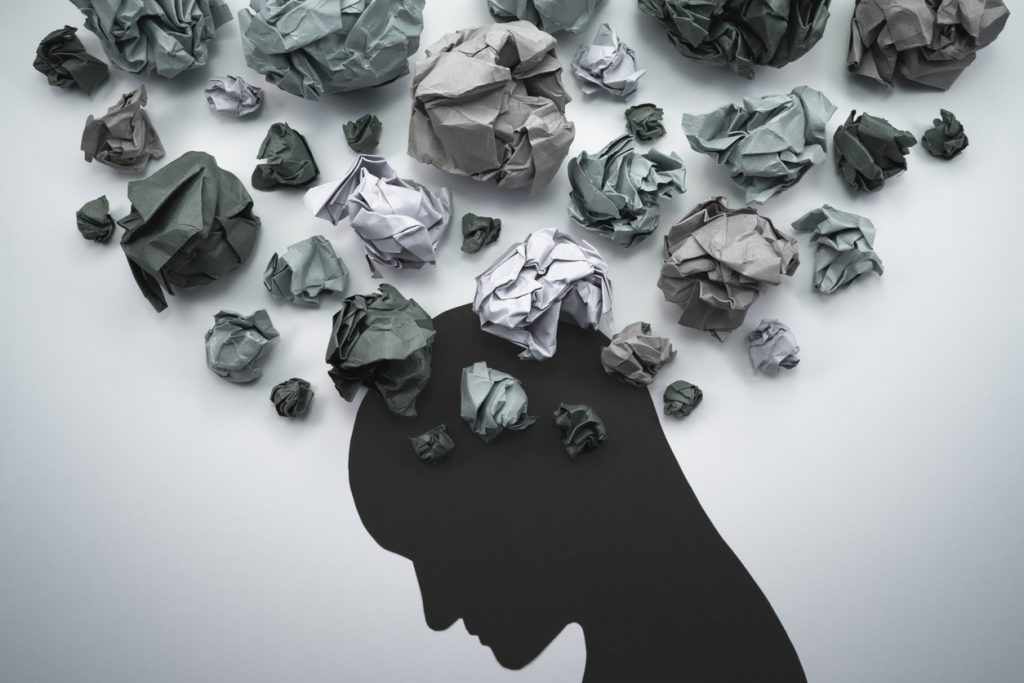Chronic Pain and Anxiety: Are They Related?

Most people don’t like to think of the idea of getting hurt or get anxious thinking about pain, and that’s normal – but what about chronic pain and anxiety? Are those two related?
Research has shown that anywhere between 30% to 50% of people suffering from chronic pain also struggle with a mental health disorder such as anxiety. Another study reported anxiety has been noted in up to 60% of patients with chronic pain.
This same study found that 60% to 80% of veterans with post-traumatic stress disorder report also having pain. There are other studies that link the two. With so much evidence, it becomes easier to conclude that yes, chronic pain and anxiety are related.
This answer leads to more questions, however. Like, how are they linked? Why are they linked? To answer these, let’s start with the basics of discovering more about chronic pain and anxiety, separately.
What is Chronic Pain?
Chronic pain is associated with the length of time a person feels pain. Twelve weeks or longer is a common time frame, however it can vary based on an individual’s unique circumstances. Chronic pain has been reported to affect 8 out of 10 adults in America.
This may be because there are multiple types of chronic pain, broadening the number of people who can be affected. Today, four types are most often recognized:
1. Chronic Back Pain
I bet you, or someone you know, experiences back pain daily. Some back pain is caused by an injury, while other pain is caused by fractures, dislocated discs, nerves being compressed.
2. Chronic Headaches
Headaches may not always be thought of as falling into the chronic pain category but if you have a headache on 15 days out of any month, you have chronic headache pain. The days you have a headache do not have to be consistent, but recurrent enough that it interferes with your functioning at least half of the time.
3. Chronic Joint Pain
Arthritis is a major culprit in creating chronic joint pain. Others include osteoporosis, bursitis, tendonitis, and rheumatoid arthritis.
4. Chronic Nerve Pain
Neuropathic pain can affect one in ten Americans. This type of pain is most often due to nerves being damaged, exposed or compressed in some way. Sciatica, carpal tunnel syndrome, nerve pain after having shingles, or diabetic related nerve problems.
All of these are extremely painful and can interfere with how a person functions in their daily living.
What is Anxiety?
Anxiety is a mental health disorder with many levels of the illness. Generalized anxiety, panic disorder, post-traumatic stress disorder, panic disorder and phobias are some of the most common anxiety illnesses.
Most everyone has anxiety at some point in their life. Many people feel anxious at least once a day. But for some reason, they can ease their anxiety and move on. Not everyone can do this, especially those with chronic pain.
Anxiety happens when you excessively worry or feel concern. When you feel pain for months at a time, whether it is diagnosed or doesn’t yet have an origin, you will worry about it. It is extremely hard not to think about pain that is constant.
Your focus is on how to ease the pain you are feeling. And if it does ease, you may worry and stress over when the pain will return. You worry about being able to complete personal and professional tasks. Before long, you find yourself worrying about all the ways both your anxiety and your pain can interfere with your lifestyle.
Anxiety is often considered a response to a threat of some kind. Your brain interprets signals as dangerous and tells our bodies to either escape or fight the perceived threat. With chronic pain, the pain itself is a threat.
The opposite can happen too, with perceived stress and worry creating pains in the body.
Chicken or The Egg?
You have heard the old question, which came first, the chicken or the egg? People often ask which came first, anxiety or chronic pain?
The answer depends on the person. One of the symptoms of anxiety disorders is pain in the form of achy bones and joints, headaches, stiffness and more. And having chronic pain can lead to a sufferer feeling great amounts of anxiety and stress.
Both chronic pain and anxiety can be devastating on their own. When combined, they can wreak havoc on a person’s life.
Trying to figure out the root of a person’s pain and anxiety can be confusing simply because we now know, according to Harvard Health, pain and anxiety share the same biological mechanisms. Both anxiety and pain are conditions related to the nervous system.
The Nervous System Connection
The nervous system is the common denominator between chronic pain and anxiety. The nervous system considers pain a danger. Because of this, danger signals are sent to the brain, which then tells the body how to respond.
Responses are often in the form of tensing muscles, sweating, raised blood pressure and higher heart rates. All of these can make the pain feel worse.
Over time, these responses can become chronic, just like the pain. This causes a person to be hyper-focused on both the pain and the feelings of anxiety. This can eventually become consuming and can cause the nervous system to be on constant replay.
It gets stuck in a state of reaction, often called central sensitization.
Chronic Pain Rehabilitation
There are multiple treatments for the chronic pain and anxiety combination. However, only chronic pain management specialists work on these conditions together.
They use treatments like cognitive behavioral therapy, joint injections, nerve injections and medications. Your pain management specialist will create a comprehensive plan that may also include innovative treatments like Botox for headaches, bio feedback, massage therapy and even medical foods.
Find a doctor who will individualize your treatment plan to meet the needs of your life, so you can reduce both anxiety and pain.


